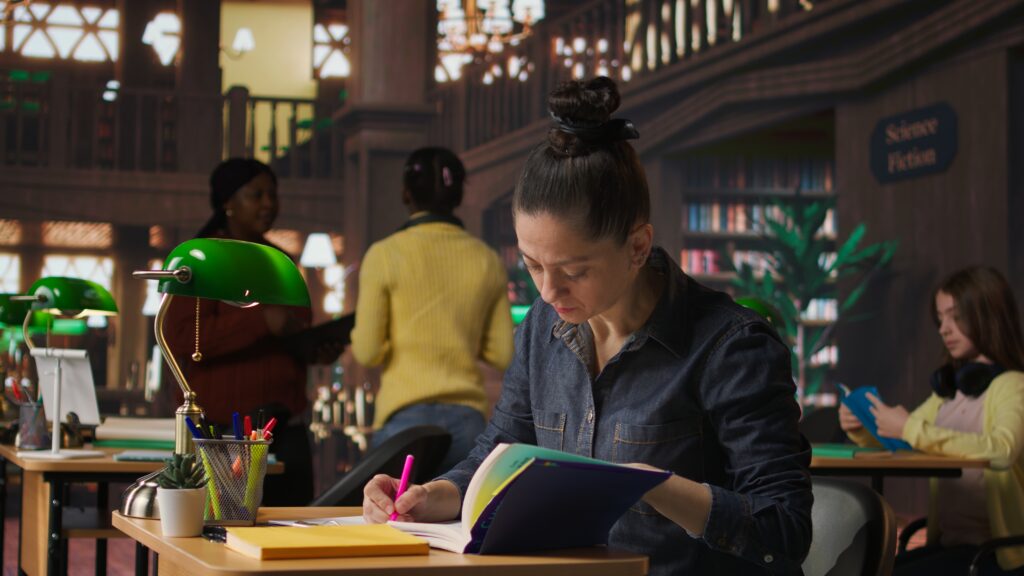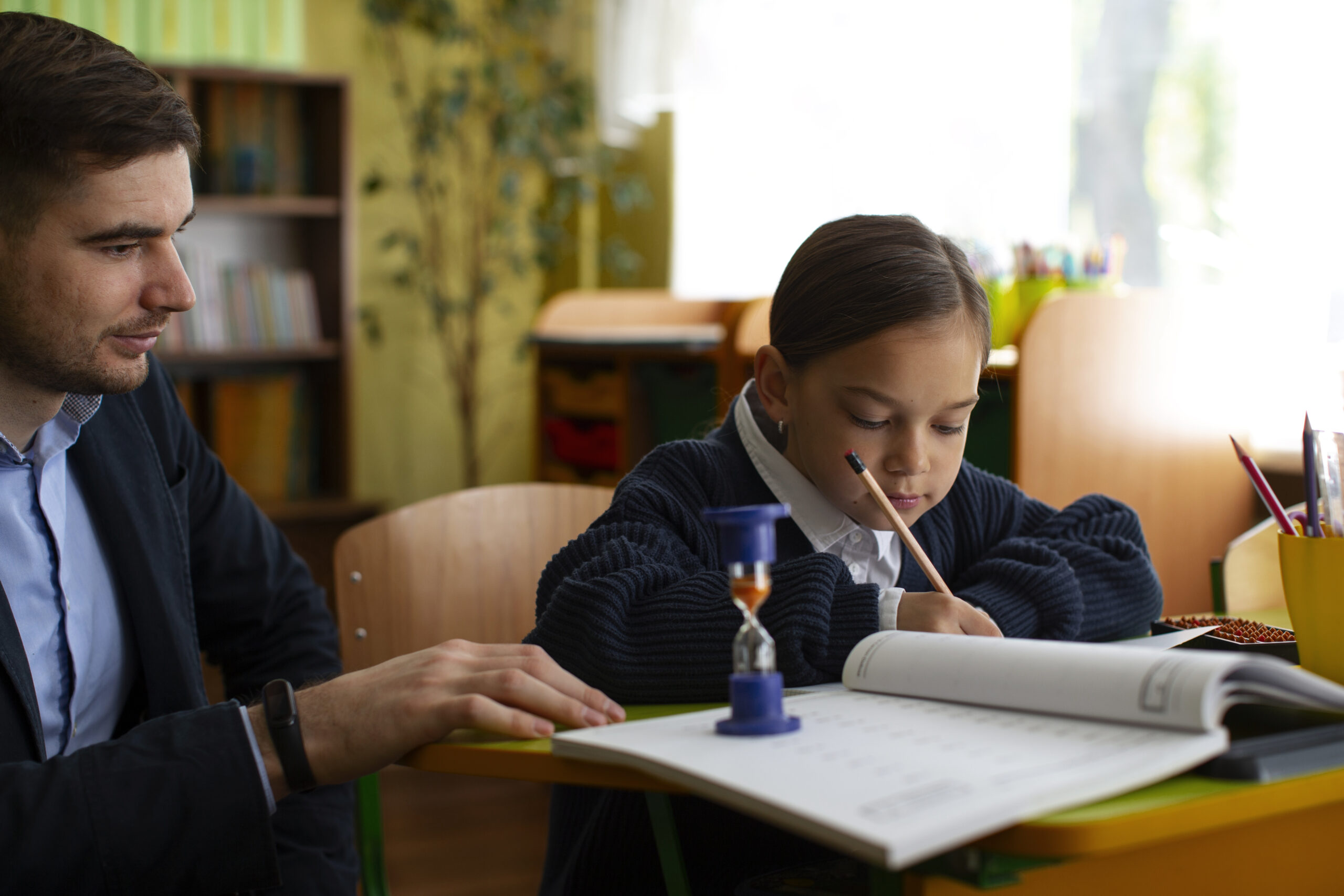Bolivian Ministry of Education – A Complete Guide to Structure, Policies, and Educational Reforms in Bolivia 2025
Introduction to Bolivian Ministry of Education
The Bolivian Ministry of Education is in charge of making sure that the country’s education system runs smoothly and is safe. This is in charge of basic, secondary, and higher education institutions. It also makes national policies that fit with the country’s social, cultural, and economic goals. Students, instructors, parents, and politicians may learn a lot about Bolivia’s educational mission and the direction the sector is going by understanding how the Bolivian Ministry of Education works.
This always tries to make sure that all students, including indigenous people, urban students, and rural communities, may get an education that reflects Bolivia’s varied character. As part of its objective to promote social inclusion, the encourages students to learn Spanish, Quechua, Aymara, and other native languages.
Historical Background of the Bolivian Ministry of Education
The Bolivian Ministry of Education has been present for a long time and has helped the country flourish politically and culturally. Bolivia used to have a European-style education system that was centralized, but over time this began to make decisions that reflected the country’s indigenous traditions. The Bolivian Ministry of Education changed a lot, and a large part of it was reforms that aimed to decentralize administration and get people involved in their communities.
This used to have challenges such not having adequate infrastructure, not enough people in remote areas who could read, and not everyone having the same access to education. The fact that changes are still happening, nonetheless, demonstrates that the has modified its pedagogical philosophy to keep up with the times. The main goals today include justice, bilingual education, and keeping the academic curriculum up to date with global trends while still respecting local traditions..

Vision and Mission of the Bolivian Ministry of Education
The Bolivian Ministry of Education’s goal is to make sure that all citizens have access to high-quality, culturally appropriate education. The ministry thinks that everyone has the right to an education, and it wants to make sure that people in cities and towns have the same access to schools. This job is to promote moral ideals, social fairness, and community empowerment via education. This wants to create individuals that are not just good at school but also aware of and connected to their culture.
The Bolivian Ministry of Education puts a lot of emphasis on intercultural education. They want people in Bolivia to be aware of and appreciate the different cultures and indigenous identities that exist there. The ministry’s goal is also to bring technology into classrooms to make the learning environment better and get pupils ready for a digital future.
Structure and Departments within the Bolivian Ministry of Education
The Bolivian Ministry of Education has a number of departments and levels of administration that are in charge of different parts of the education system. These departments work together to make sure that national education policies are carried out correctly. The main office of the is in La Paz, however there are other regional offices and local education units all around the nation. This contains separate sections for technical education, teacher training, curriculum development, higher education policy, and early childhood education.
Each department in the Bolivian Ministry of Education works together to figure out what the country’s educational requirements are and come up with solutions that fit with the ministry’s strategic plan. The decentralization model lets local communities help carry out policies and change education to fit the cultural needs of each region.

Policies Enforced by the Bolivian Ministry of Education
The Bolivian Ministry of Education makes rules that are in line with the constitution’s promise of free and mandatory education. These programs aim to end illiteracy, encourage multilingual education, raise the quality of teachers, and improve infrastructure. Themakes sure that schools follow conventional curriculum standards, but they also let schools adapt to their own cultures.
The policies also deal with gender equality, including pupils with disabilities, and giving young people practical training. The encourages regular reviews of policies to find problems and come up with new plans to improve student learning. The government also has a very important job of making sure that private schools follow national criteria for quality, ethics, and fairness.
Bilingual and Intercultural Education Programs
Bolivia is a country with many cultures, and the knows how important it is to retain linguistic variety through its bilingual education programs. The Bolivian Ministry of Education has laws in place that let kids in indigenous villages learn in their native language as well as Spanish. This method helps keep cultural identity safe and makes it easier for young learners to understand.
This thinks that education should reflect the lives of students, hence multilingual education is a top focus. The work on making educational materials available in several languages shows that they are committed to including people from all cultures. The n enhances national unity and pride in indigenous heritage by encouraging linguistic variety..
Teacher Training and Professional Development
Teachers are very important for making changes in education, and the spends a lot of money on programs to prepare teachers. The gives teachers frequent training to help them improve their teaching, classroom management, and topic knowledge. The Bolivian Ministry of Education urges teachers to try out new approaches of teaching via online platforms and teacher training institutes. The government also makes sure that there is a balance between men and women when hiring teachers. Their first aim is to deploy experienced teachers to rural areas.
Thebelieves that education is a group endeavor, thus teachers are encouraged to discuss on policies and curriculum ideas. The can build better training modules and make sure they function in the classroom by using an all-inclusive approach.
Infrastructure Development Under the Bolivian Ministry of Education
The Bolivian Ministry of Education has started a number of programs to make schools better around the country. This is because physical infrastructure is important for good education systems. Many areas didn’t have the right classrooms, bathrooms, or learning materials. The sets aside money to create new schools, fix up old ones, and provide technology like computers and internet access. The wants to make sure that all children, no matter where they live, have access to secure and well-equipped places to learn. The keeps an eye on infrastructure projects to make sure that resources are used wisely and that people are held accountable.
Digital Transformation Initiatives in Education
The Bolivian Ministry of Education is now focused on digital transformation in classrooms since technology is becoming more common. The government wants to make schools smarter by using digital textbooks, online learning platforms, and instructional TV shows. The agrees that digital technologies assist close the gaps in education and give students who can’t go to class in person more options for learning.
The makes the whole educational experience better by teaching instructors how to use digital platforms. These tech-based projects from the were especially helpful during times of global upheaval when regular school wasn’t available. The ministry is always looking at new digital ways to keep Bolivia up to date with changes in education throughout the world.
Community Involvement in Educational Governance
The thinks it’s important for people in the community to be involved in making decisions. Parents, indigenous leaders, and local officials are urged to work with schools to improve how schools are run. The thinks that education should represent the values of the community and that people in the area should be involved in making decisions about policy.
The Bolivian Ministry of Education sets up school committees and councils to keep an eye on learning results and recommend ways to make things better. The s participatory model of governance helps bridge the gap between rural and urban areas and makes sure that the opinions of those who are often left out are heard in educational planning.

Challenges Faced by the Bolivian Ministry of Education
The has made a lot of progress, but it still has problems like not having enough money, not having enough teachers in distant places, and not having equitable access to digital technology. Many pupils in rural areas still have trouble getting a good education because of where they live. The is trying to solve these problems via mobile schools and community-based learning programs.
Another problem for the is making sure that all public and private schools offer the same level of quality. The Bolivian Ministry of Education’s major goal is to make sure that everyone has access to education. To do this, they must keep an eye on standards and hold people accountable.
Future Goals and Reforms Planned by the Bolivian Ministry of Education
In the next several years, the Bolivian Ministry of Education has set strategic targets to modernize education. These include increasing digital literacy programs, raising teachers’ pay, and encouraging students to study abroad. The Bolivian Ministry of Education also wants to improve vocational education so that it meets the needs of the job market. Reforms in the future will be based on sustainability, new ideas, and giving authority to communities. The Bolivian Ministry of Education wants to make the education system strong and forward-thinking by making sure that its policies are in line with global aspirations for sustainable development.
Comparison with Other Latin American Education Ministries
The Bolivian Ministry of Education is comparable to education ministries in other Latin American nations in many ways, especially when it comes to fighting inequality and encouraging bilingual education. The Bolivian Ministry of Education, on the other hand, is different since it puts a lot of focus on preserving indigenous cultures. Some nations just care about modernity, but the Bolivian Ministry of Education finds a balance between tradition and new ideas. This comparative method shows how the Bolivian Ministry of Education has made policies that are based on identity.
Impact of Bolivian Ministry of Education on National Development
Education is a key factor in the growth of a country, therefore the Bolivian Ministry of Education is very important in deciding Bolivia’s future. A population that is well-educated helps the economy thrive, lowers poverty, and improves health care. The Bolivian Ministry of Education knows that education develops human capital, hence they are making long-term changes. The ministry’s focus on inclusive education makes sure that all communities are involved in the country’s advancement. The Bolivian Ministry of Education uses smart policies to make sure that Bolivia can compete on the world stage while keeping its cultural origins.
Conclusion
The Bolivian Ministry of Education plays a big role of making Bolivia’s economy and society better. The Bolivian Ministry of Education is continually evolving to fit the needs of society, such initiating digital learning initiatives and promoting bilingual education. The ministry’s commitment to education that is open to everyone and respects all cultures indicates that they want peace and progress. Learning about the Bolivian Ministry of Education’s tasks, policies, and goals may help people better understand the labor that goes into influencing future generations. The Bolivian Ministry of Education still puts innovation, fairness, and community involvement at the top of its list of things to do, even if there are still problems.
FAQs
1. What is the role of the bolivian ministry of education in curriculum development?
The bolivian ministry of education designs curriculum standards to ensure consistency across schools while allowing cultural adaptations.
2. Does the bolivian ministry of education support bilingual education?
Yes, the bolivian ministry of education promotes bilingual education to preserve indigenous languages and improve learning outcomes.
3. How does the bolivian ministry of education improve teacher quality?
The bolivian ministry of education offers continuous training programs and professional development initiatives for teachers.
4. What challenges does the bolivian ministry of education face in rural areas?
The bolivian ministry of education faces challenges like lack of infrastructure and teacher shortages in rural regions.
5. What future goals has the bolivian ministry of education set?
The bolivian ministry of education aims to increase digital learning, improve infrastructure, and promote vocational education.







